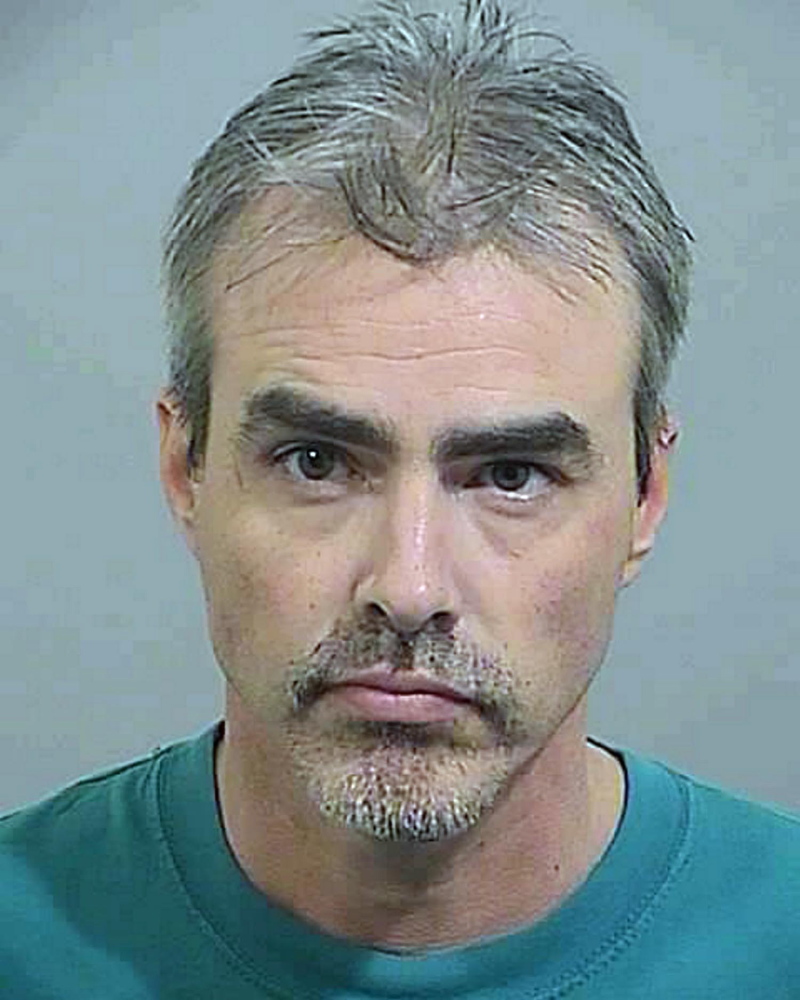Sidney Kilmartin, a Windham man accused of mailing cyanide to a suicidal man in England who used the poisonous chemical to kill himself, had also accepted payment for cyanide from at least four other people, according to newly unsealed court records.
But the packages Kilmartin mailed to those people contained Epsom salt, not the deadly cyanide they had paid for, the records in U.S. District Court in Portland state.
After Kilmartin, 53, was arrested last Nov. 5 on federal charges in connection with the 2012 cyanide death of Andrew Denton of Kingston-upon-Hull in England, federal agents investigated whether there were other victims.
Details in the international poisoning case came out as a result of a new search warrant sought in September by an agent for the U.S. Postal Inspection Service to seize Kilmartin’s laptop computer from his brother-in-law’s house in Westbrook. U.S. District Judge Nancy Torresen allowed the search warrant application and supporting affidavit to remain sealed for 60 days as the investigation proceeded.
The investigators located the four people who had received packages from Kilmartin and discovered they were still alive and still had the packages they received in the mail, Postal Inspector Jeffrey Taylor said in the search warrant affidavit.
“Between March and May of 2015, the government retrieved those items and had them tested by the Maine Health and Environmental Testing Laboratory, which determined that all were magnesium sulfate heptahydrate, commonly known as Epsom salts,” Taylor wrote.
However, Taylor does not explain in the affidavit why that led investigators to talk to Kilmartin’s brother-in-law, John Ruminski, who had retrieved Kilmartin’s laptop after his arrest and kept the computer unused at his Westbrook residence.
The development comes as lawyers in the case against Kilmartin prepare for trial, now scheduled to proceed in federal court in Bangor from May 3-17.
Kilmartin faces two federal charges of mailing injurious articles for allegedly sending two batches of cyanide to Denton in 2012. The first, sent on Nov. 16, failed to kill Denton. The second batch, which investigators say Kilmartin sent by U.S. mail on Dec. 11, was used by Denton to kill himself.
Kilmartin is accused of advertising cyanide online as “a painless and quick way to commit suicide” to anyone who could pay $250 a gram, and corresponding with Denton by email.
Kilmartin’s defense attorney, Wayne Foote, and the prosecutor, Assistant U.S. Attorney Halsey Frank, jointly acknowledged to the judge in a motion filed last month that the government may seek a new indictment that could include other charges.
“The parties represent that this is a large, complicated case that involves serious charges and penalties. The government may seek a superseding indictment. The government anticipates calling at least 35 witnesses in its case in chief. Many of the witnesses reside outside Maine and in England. Their presence at trial will require advance planning and arrangements, and significant expense,” Foote and Frank wrote in the joint motion.
Kilmartin faces up to life in prison.
Scott Dolan can be contacted at 791-6304 or at:
Twitter: scottddolan
Send questions/comments to the editors.



Comments are no longer available on this story